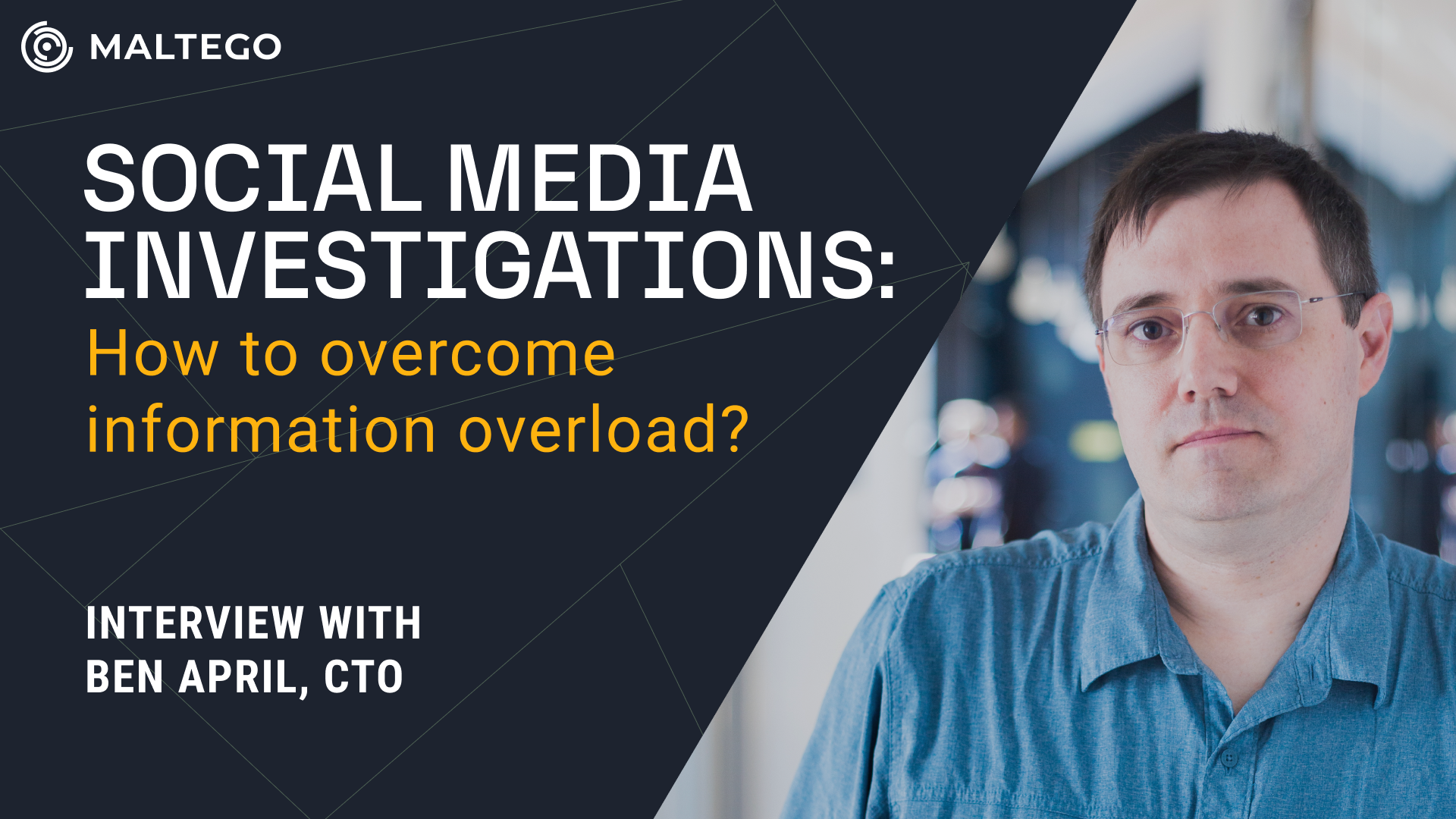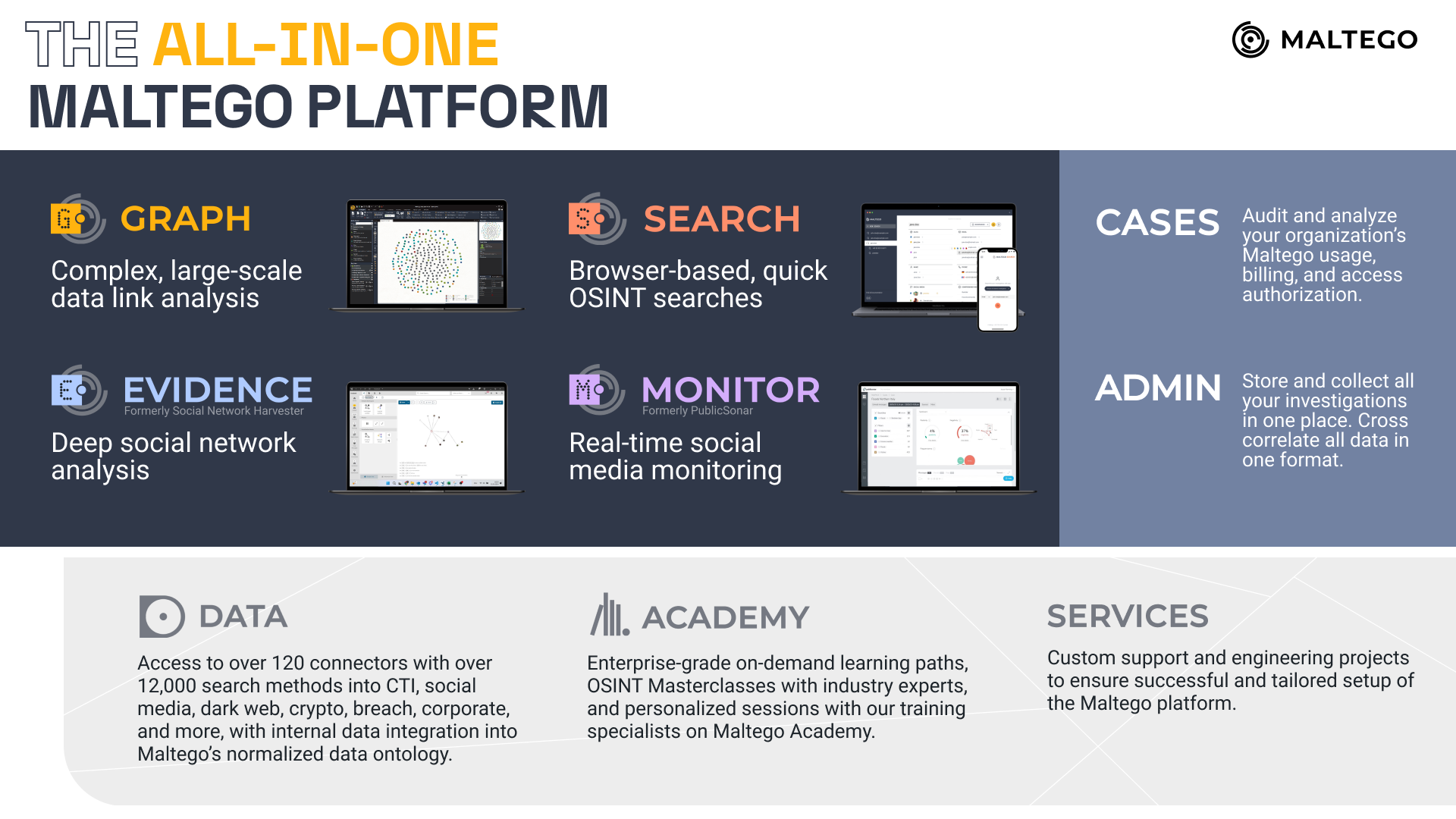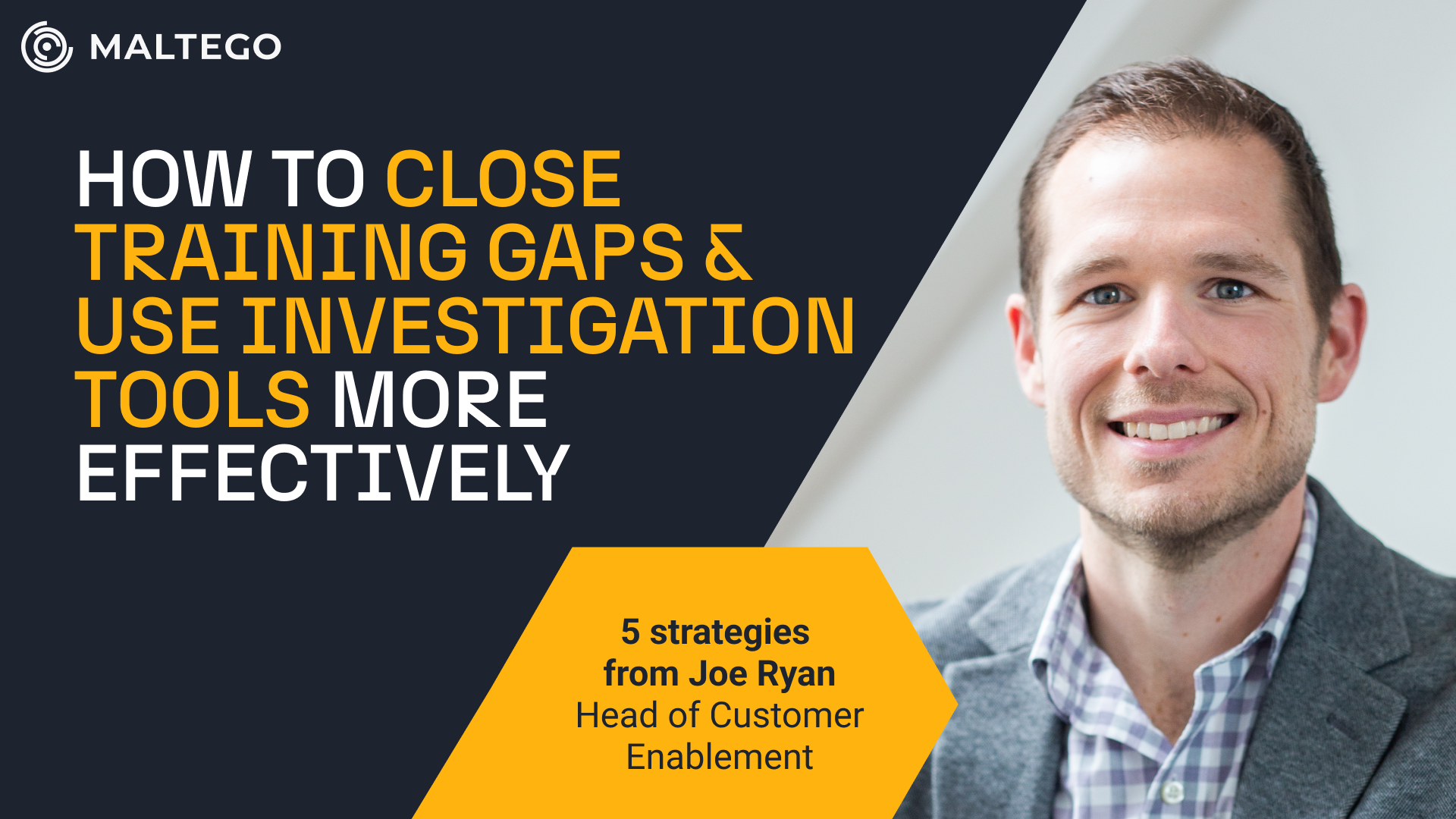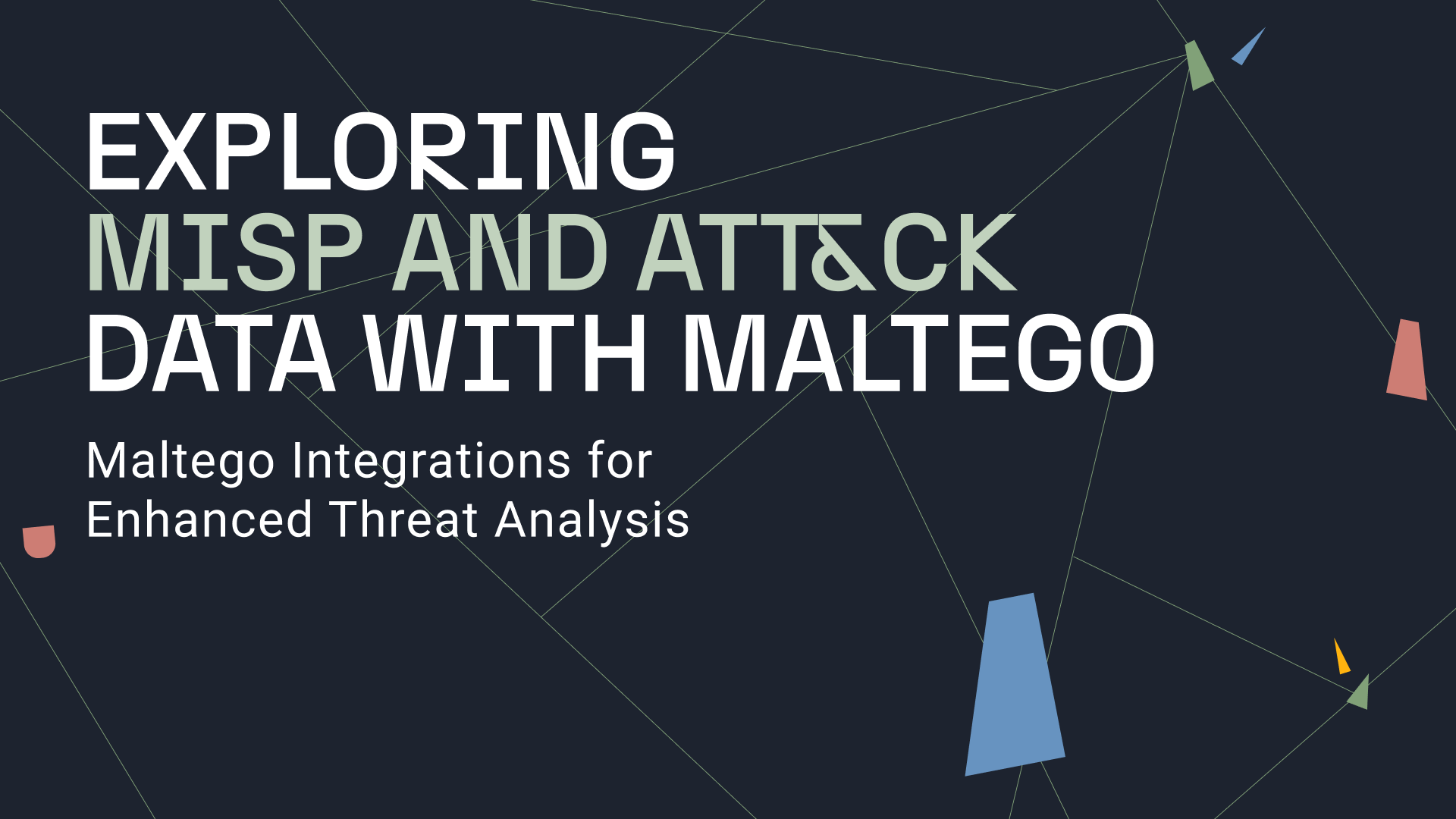Social media is a central part of our lives—both personally and professionally. For investigators, the abundance of information it provides offers great potential, but as the volume of content explodes, it also leads to information overload.
This overwhelming amount of data makes it challenging to find actionable intelligence, understand a user’s intent, and move investigations forward, whether your team is working on fraud cases, criminal investigations, brand protection, or others.
In a recent episode of the N2K CyberWire Daily podcast, Ben April, Chief Technology Officer at Maltego, discussed these challenges and shared valuable insights on how organizations can leverage social media data as a critical source of intelligence for their investigations.
Read on to discover key takeaways, or listen to the full interview now!
Takeaway 1: The Growing Complexity of Data Collection 🔗︎
What began as text-based communities has quickly evolved into images, videos, and now we’re starting to explore VR and immersive 360-degree content, creating a vast pool of self-published information. This surge in content offers new opportunities, but it requires investigators to adapt and stay alert to growing threats.
As new social media features emerge, so do novel risks, which bad actors quickly exploit. To keep up, investigative teams need the right tools to efficiently handle diverse data formats and evolving threats.
Social media platforms are also not one-size-fits-all when it comes to collection of that data. Each has its own policies, structures, and tools, which can make accessing intelligence a challenge.
Takeaway 2: Balancing Real-Time vs. Historical Data 🔗︎
Real-time data provides a snapshot of current events, while historical data offers essential context and patterns that are often critical for building a case. The decision between real-time and historical data depends on the investigation’s goals. As Ben put it in the interview:
You’ve got to look for whether you’re getting access to real-time only, or real-time plus historical, or maybe even historical only. And it’s not just about the type of data—it’s about how it fits your investigation. You need to align your data collection with what you’re actually trying to achieve, whether it’s immediate insights or building a long-term case based on patterns and historical behaviors.
Your choice guides the team’s investigations and ensures they use the best tools for the job.
Takeaway 3: Avoiding Pitfalls in Social Media Investigations 🔗︎
Misinterpreting data is a common risk in social media investigations. It is easy to fall into the trap of confirmation bias, where investigators see something that aligns with what they expect while missing key context that might paint a different picture. Drawing conclusions about a subject’s intent from a single post or interaction can lead your team down the wrong path.
Given the volume of data, separating authentic content from noise is also difficult, and the intent behind posts can be hard to discern. Scrutinizing social media data and corroborating it with other sources helps build a more reliable narrative. For example, teams using the Maltego platform rely on Maltego Data to cross-reference information from various sources and integrate internal data to ensure the accuracy of their conclusions.
Interview on Challenges in Social Media Investigations 🔗︎
Hear more of Ben’s insights on the full podcast episode:
How Maltego Helps Investigators Cut Through Social Media Noise 🔗︎
While Ben’s interview highlighted the challenges of collecting social media data and overcoming information overload, addressing these issues in practice requires teams to adopt technology that integrates data from diverse sources and helps uncover actionable intelligence more efficiently.
The Maltego platform provides investigators with an ecosystem of tools and data, allowing them to analyze and connect social media data with other intelligence sources to make sense of even the most complex cases. Organizations worldwide succeed in social media investigations through:
- Mapping connections between individuals, organizations, and posts in a clear, visual format using Maltego Graph, making it easier to track relationships across social media platforms and uncover hidden links that might not be immediately apparent.
- Running quick OSINT lookups across vast datasets with Maltego Search, enabling investigators, especially novices, to efficiently gather relevant social media information while maintaining clear data lineage. This helps prevent getting lost in large volumes of data.
- Cross-referencing social media data with external sources and internal datasets to enrich investigations with broader context and ensure more accurate conclusions, all powered by Maltego Data.
- Monitoring social media in real-time with Maltego Monitor, allowing investigators to track changes in posts, accounts, and interactions as they happen, keeping them updated on developing situations.
- Conducting deep social network analysis and securing critical information with Maltego Evidence, which provides first-hand access to social media data before it is altered or deleted, preserving vital historical information for investigations.
Try Maltego for Your Next Investigation 🔗︎
Want to see how Maltego can help your team overcome the challenges of social media investigations?
Request a demo today:


 4.5 rating
4.5 rating








